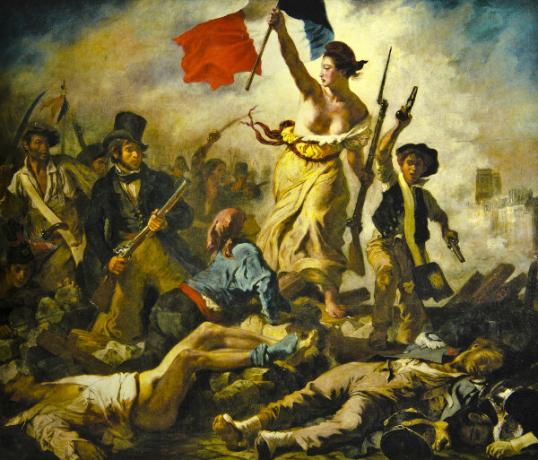In addition to other ailments to which children may be subjected, such as child labor, violence and abuse, there are those linked to other types of exploitation, such as sexual exploitation. In this sense, not only child prostitution is a contemporary problem, but also what is known as pedophilia.
As Rosangela Medeiros (2011) points out, from an etymological point of view, the word pedophilia is of Greek origin (paidophilia)born from the combination of the noun country, paidos (child) and the verb phileo (friendship), meaning friendship or liking for children, in addition to representing in ancient Greece the homosexual and pedagogical love of a mature man for a prepubescent boy (not yet at the stage of puberty). Today, its meaning is associated with a type of sexual perversion.
According to the Database of the Unified Health System in Brazil, made available by the SUS IT Department – Datasus –, pedophilia can be considered as a sexual preference for children, whether boys, girls, usually prepubescent or at the beginning of puberty, being classified among the preference disorders sexual. Thus, it is important to note that because of its classification as a mental disorder, the individual affected by this pathology just becomes a criminal when in fact performs the act of exploitation of the child, thus violating the child's rights guaranteed by law as seen in Article 227 of the Federal Constitution Brazilian.
Not only does the sexual act with minors lead to a crime, but also the dissemination and promotion of material pornographic containing children, as indicated in Article 241 of the Statute of the Child and Adolescent. In general terms, the aforementioned article in its content specifies a series of actions qualified as criminal acts, such as sale and exhibition for sale of photographs, videos, among other materials, as well as offering, exchanging, making available, transmitting, distributing, publishing or disclose, by any means (such as the internet), records containing explicit or pornographic sex scenes involving children or teenagers.
Pedophilia is not a national issue characteristic only of Brazilian society, but it is a problem in international terms, given the communication capacity guaranteed by the world wide web, which facilitates the circulation of information and materials of this nature among pedophiles from all over the world. Hence the importance of the participation of institutions such as UNICEF (United Nations Fund for the Childhood) and the entire international community in promoting a global agenda to address this problem.
Brazilian media constantly report cases like this from all over the country. Therefore, there is a mobilization against this type of crime by the Public Power, in which the State in all its instances (federal states and Union), and through institutions such as the Federal Police and the Public Ministry, seeks to eradicate this practice with actions ranging from campaigns to sensitization and motivation of civil society to engage in this struggle, to direct actions of search and seizure of materials, in addition to the arrest of the involved. As the website of the Secretariat of Human Rights of the Federal Government points out, in 2002 the National Program for Confronting Sexual Violence against Children and Adolescents as a response to the demands of the National Plan to Combat Sexual Violence Children and Youth. Its objective would be to mobilize networks to articulate actions of various entities beyond the federal government, such as international agencies, universities and civil society. Likewise, it is worth pointing out another very important tool of the federal government, such as the “Disque Denúncia Nacional – DDN 100”, a free service available to society.
Do not stop now... There's more after the advertising ;)
In addition to the actions mentioned, there is an important participation of other non-governmental organizations, such as the “censura.com.br” websites, which promote what they call National Campaign to Combat Pedophilia on the Internet and “SaferNet Brasil”, a website that contributes to the fight against crimes and violations of Human Rights on the Internet. Among all the complaints received by the latter, in the second half of 2011, 33% related to cases of child pornography, which suggests that pedophilia is among the most frequent crimes by network.
As is well known, there is a cultural aspect that cannot be given up when analyzing the sexual behavior of groups and societies. At certain historical moments in Western society (and even in Brazil, more specifically) or in other patterns culturally, marriage between older men and prepubescent girls was (or still is, in some cases) a practice ordinary. However, from the point of view of Psychology, considering that children would still be incapable, because they are in a cognitive and psychological status lower than that of adults, they would be in a fragile situation or vulnerability. In this condition, the child would be an easy target for pedophiles, who can deceive, deceive, deceive, entice, etc., in the name of their desires considered unhealthy. This means that such children could not clearly discern their sex life, although psychoanalysis reports that sexuality is a constant in human life from an early age. Thus, there is a consensus that sexual acts with children would be an affront to human rights, that is, they characterize violence.
From a sociological point of view, it is possible to understand how such practices assume the character of a social problem or anomaly, a since its existence meets behavioral standards, especially when considering the moral aspect involved. The way in which children, the elderly, and women are “seen” in each culture, in short, occurs through a responsible social process by the conformation of the fundamental values to social cohesion, that is, values that guarantee the union and the permanence of the group. Therefore, attacking these values (such as sexually abusing children) means undermining the bonds of solidarity and affronting the then-current moral code. This justifies the collective feeling of indignation and revolt of the collective conscience when they are cases of this nature have been reported, especially when the facts occur within the context of family life, for example. Likewise, the breach of expectations regarding the role of certain social actors can increase the indignation of public opinion, such as the cases so publicized by the media involving Church religious Catholic.
Thus, it is necessary to understand that the rejection of pedophilia is at the heart of the struggle for the preservation and promotion of human rights. It is a struggle for everyone, governments, police authorities, the public prosecutor's office and, fundamentally, civil society, that is, each citizen. Caring for children is not just about complying with a law, but about guaranteeing their right to a happy childhood, a necessary basis for their formation as individuals.
Paulo Silvino Ribeiro
Brazil School Collaborator
Bachelor in Social Sciences from UNICAMP - State University of Campinas
Master in Sociology from UNESP - São Paulo State University "Júlio de Mesquita Filho"
Doctoral Student in Sociology at UNICAMP - State University of Campinas


